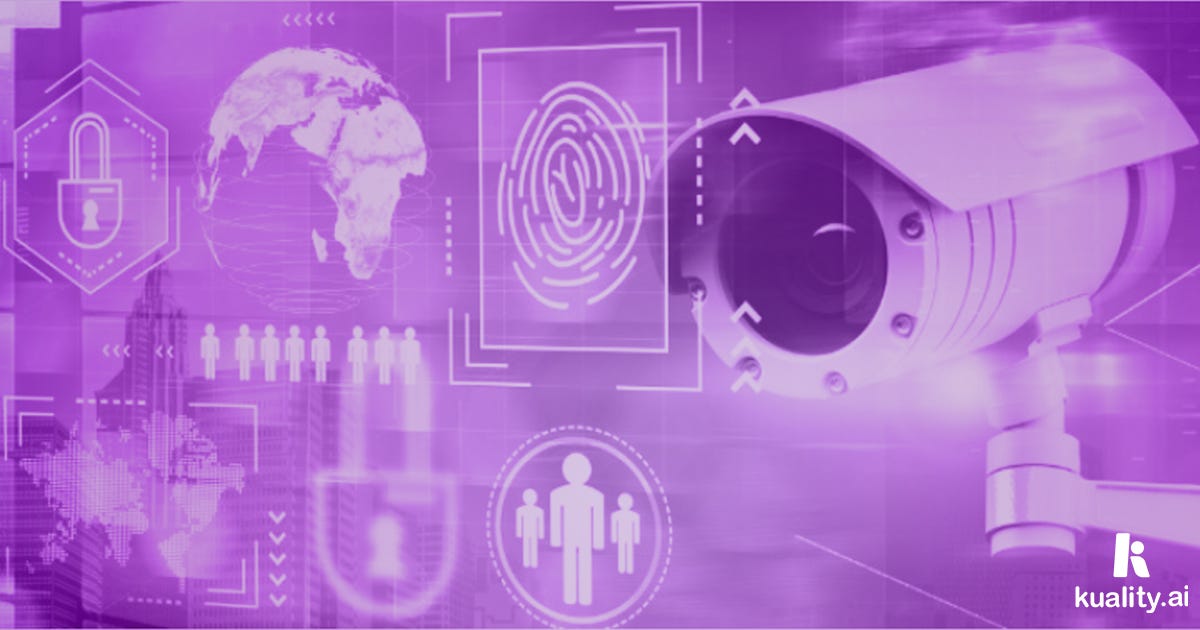
Welcome to the world of surveillance technology! With the rapid evolution of artificial intelligence (AI), the landscape of surveillance has transformed heavily. Long gone are the days of simply keeping an eye on someone. With the rise of sophisticated software and powerful algorithms, governments all over the world are leveraging the latest advancements in AI to create an expansive network of cameras that can analyze every frame and provide real-time insights. This technology has saved countless lives and prevented countless crimes.

The Challenges and Ethical Concerns for the growing power of AI surveillance
With each passing day, The self-learning capabilities of AI technology are making remarkable progress in its ability to identify and reason about objects in a given scene.
What does this mean for us? It means that the power of AI is constantly growing, reducing errors, and achieving levels of accuracy that can rival or even surpass human performance.
However, as with any technology, there are potential ethical concerns to consider. While AI-powered surveillance has incredible potential, it’s important to ensure that it is being used in a way that respects human rights and doesn’t violate privacy. As we continue to develop these technologies, it’s essential to maintain a thoughtful and nuanced approach that balances the benefits of these tools with the potential risks
As we dive into the field of surveillance, several challenges come to the forefront: tracking individuals, monitoring specific areas, analyzing traffic and parking, and understanding vehicle behavior. Accordingly, we must be mindful of potential ethical concerns that may arise, such as individual privacy and human rights violations, which must be addressed by implementing responsible practices and regulations.
By prioritizing ethical considerations, we can ensure that the use of surveillance technology serves society’s best interests. Through careful management and responsible deployment, we can create a safer and more prosperous world that benefits all individuals.
For instance, surveillance systems use real-time video processing to identify suspicious events that could threaten a business’s security, with video analytics technology efficiently detecting irregular behavior and dangerous activity that may go unnoticed by humans.

Retail Surveillance with AI
AI is also making significant progress in the field of retail surveillance, with big companies such as Fujitsu and Walmart setting up their research labs to explore the use of AI in behavioral analytics within their stores. For instance, the software can detect potential threats and immediately alert emergency responders, which helps to protect employees and keep them out of harm’s way.
Meanwhile, Amazon is taking AI to new horizons by automating the customer shopping experience throughout the entire process. In Amazon Go stores, fusion sensors and cameras are used to detect which item is selected, so by the time you finish shopping, your purchase is already made without needing any further effort from your end.

The Advantages of AI in the Defense Sector
AI technology has revolutionized the way operators approach their work, helping them to focus on other essential tasks. For example, AI can detect anomalies, such as someone entering a restricted area or committing abnormal behavior, and report them to the system—something that was never possible before. Additionally, AI can monitor parking lots, assess if vehicles have paid for their parking, and provide a statistical analysis of how many vehicles entered, how long they stayed, and more. AI is also making a big impact in the defense sector, as video monitoring software operated by AI allows security operators to spend less time on surveillance and be more effective in their roles, as it eliminates the need for operators to constantly monitor video displays and automates the detection of critical incidents.
The Global Impact of AI-Based Surveillance Technologies
Millions of cameras have been deployed by the United States and China, making them the leading countries in the AI-based surveillance market.
According to the Artificial Intelligence Global Surveillance (AIGS) index, AI-based surveillance technologies are being actively used in at least 75 countries, with China supplying AI-based technologies to 60 countries. Autocratic governments are making use of AI for mass surveillance, while liberal governments reject the idea due to privacy concerns. The European Commission is taking steps to regulate AI and reduce the associated risks, including proposing a ban on “black box” AI programs. The goal of these measures is to create trust within the public and reduce chaos.
With the increasing sophistication of AI technology, it is essential to establish ethical norms for surveillance and to consider if the advances made are ultimately beneficial for humanity.

